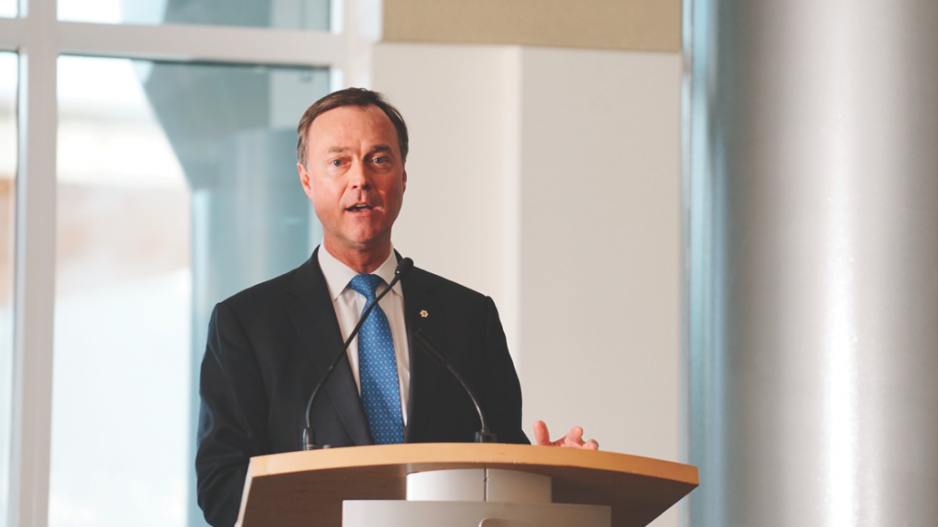Australian and American hedge funds with shares in Teck Resources (TSX:TECK.B) are angling to oust Teck CEO Don Lindsay, and want the company to get out of oil and metallurgical coal to become a pure-play metals miner.
Teck recently posted dismal first quarter earnings – largely the result of COVID-19 pandemic restrictions, chumming the waters for activist shareholders.
The pandemic has taken a significant bite out of profits. Metallurgical coal is down 53%, copper 12% and Western Canadian Select 41%, Lindsay said this week at an investors conference.
Impala Asset Management, an Amercian hedge fund, has recently joined Australia’s Tribeca Investment Partners in calling for a house-cleaning at Teck.
One of Teck’s strengths has been its diversity. Metallurgical coal and copper are its main business, but it also is in the zinc space, and over the last decade began branching out into oil sands, when it partnered with Suncor Energy (TSX:SU) on the Fort Hills oil sands project.
Right now, that looks like a terrible move. Teck recently had to take $474 million impairment on the Fort Hills oil sands project. An oil price crash has forced Teck and Suncor to cut production at Fort Hills.
Lindsay admitted this week that investing in oil seemed like a sound plan at the time, but may no longer make sense. Earlier this year, Teck announced it was abandoning its $20 million Frontier oil sands project in Alberta. The company had spent about $1 billion trying to move that project forward.
Teck’s shares are down by nearly 50% since the beginning of this year – from $22.78 on January 2 to today’s $12.12 per share. Its earnings are also down.
The COVID-19 pandemic has taken a big bite out of its profits, resulting in a $312 million loss for shareholders, according to the company’s first quarter financials.
That compares to a profit of $630 million for the first quarter of 2019. The company’s first quarter earnings before interest, taxes, depreciation and amortization (EBITDA) was $45 million, compared with $1.4 billion in Q1 2019.
“COVID-19 has had a significant effect on our business and contributed to significant reductions in the prices we receive for the commodities we produce,” the company said in a release.
Teck incurred $44 million in costs when it decided to suspend its QB2 expansion project in Chile, as a result of the COVID-19 pandemic.
Tribeca has picked up on the company’s poor earnings recently to push for Lindsay’s replacement and for a divestment out of both oil and metallurgical coal.
Teck is somewhat insulated from shareholder activism, however, partly because of its share structure. The Keevil family owns a significant share of Teck, and its dual share structure gives those shareholders greater control. Shareholders just recently voted 98% to reappoint Lindsay as CEO and reappoint all directors.
The last time analysts and activists were writing off Teck and Lindsay was in 2016, when the company’s shares fell below $4 per share.
A year later, Teck’s stock was back up to $30 per share. At the 2017 Association of Mineral Exploration's Roundup conference, Lindsay said: “We had analysts and prognosticators telling us that we would never recover and that the industry was doomed. Next time you see that, buy Teck.”
More recently, at the B of A Securities virtual conference on Tuesday, Lindsay conceded that “the world has changed” since it first started moving into the oil sands.
“With the benefit of 20-20 hindsight, the fact is we very likely would have made a different decision back in 2006 back when we first entered the business,” Lindsay said.
An oil price plunge has forced production cuts at oil sands operations like Fort Hills, which now has Lindsay reconsidering being in the oil business.
Some of the production cuts have been mandated by the Alberta government to address not just low oil prices, but also a lack of storage and pipeline capacity.
“It has not been able to run at capacity since then,” Lindsay said of the Fort Hills project.
“We have been very clear that if we can’t see the value of Fort Hills reflected in our share price, we will not hesitate to pursue other options for realizing value, including divestment at the appropriate time," Lindsay said Tuesday.
He added the company does have a plan to “rebalance” its portfolio to focus more on copper, citing the expansion of the QB2 copper-gold mine in Chile as an example.




